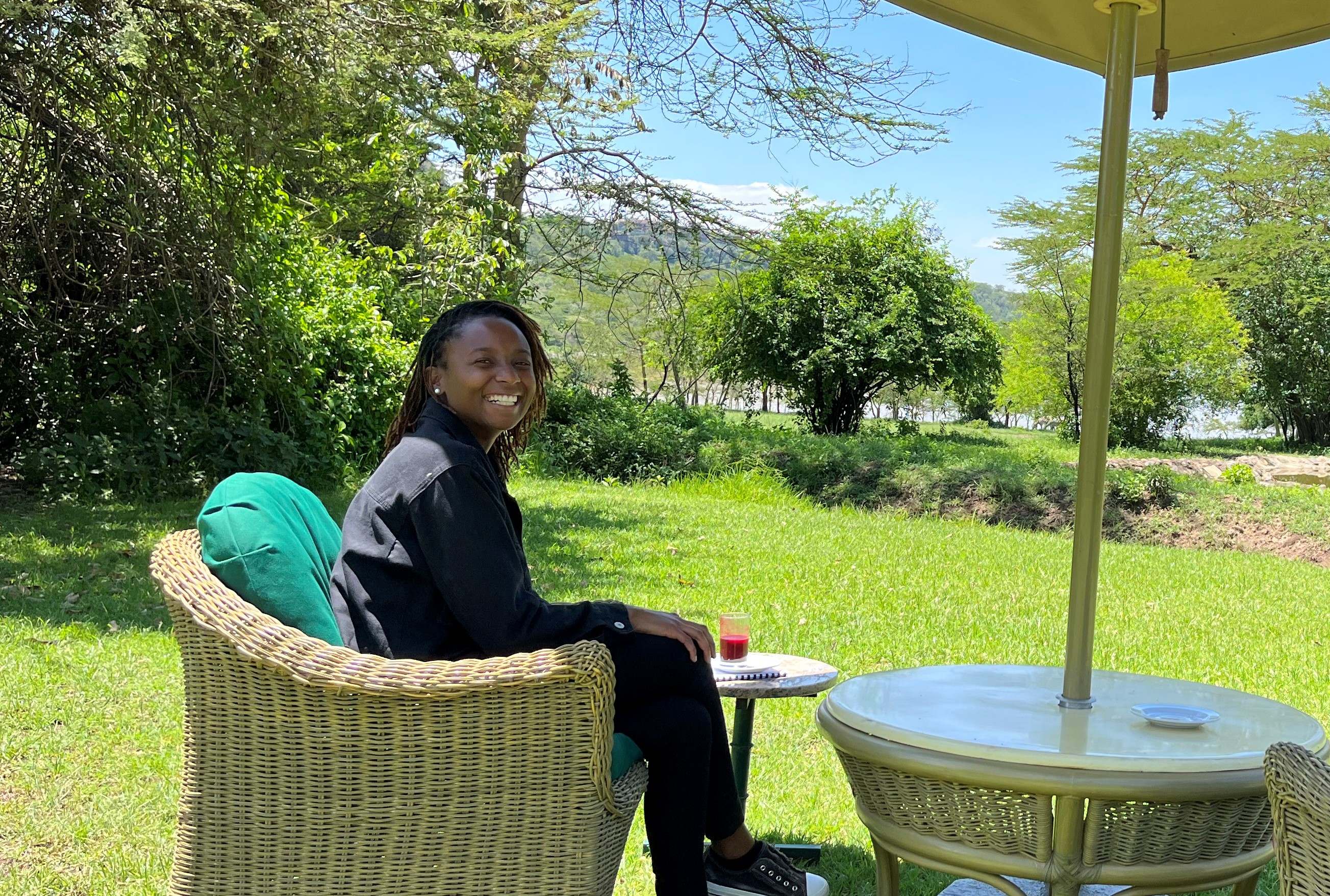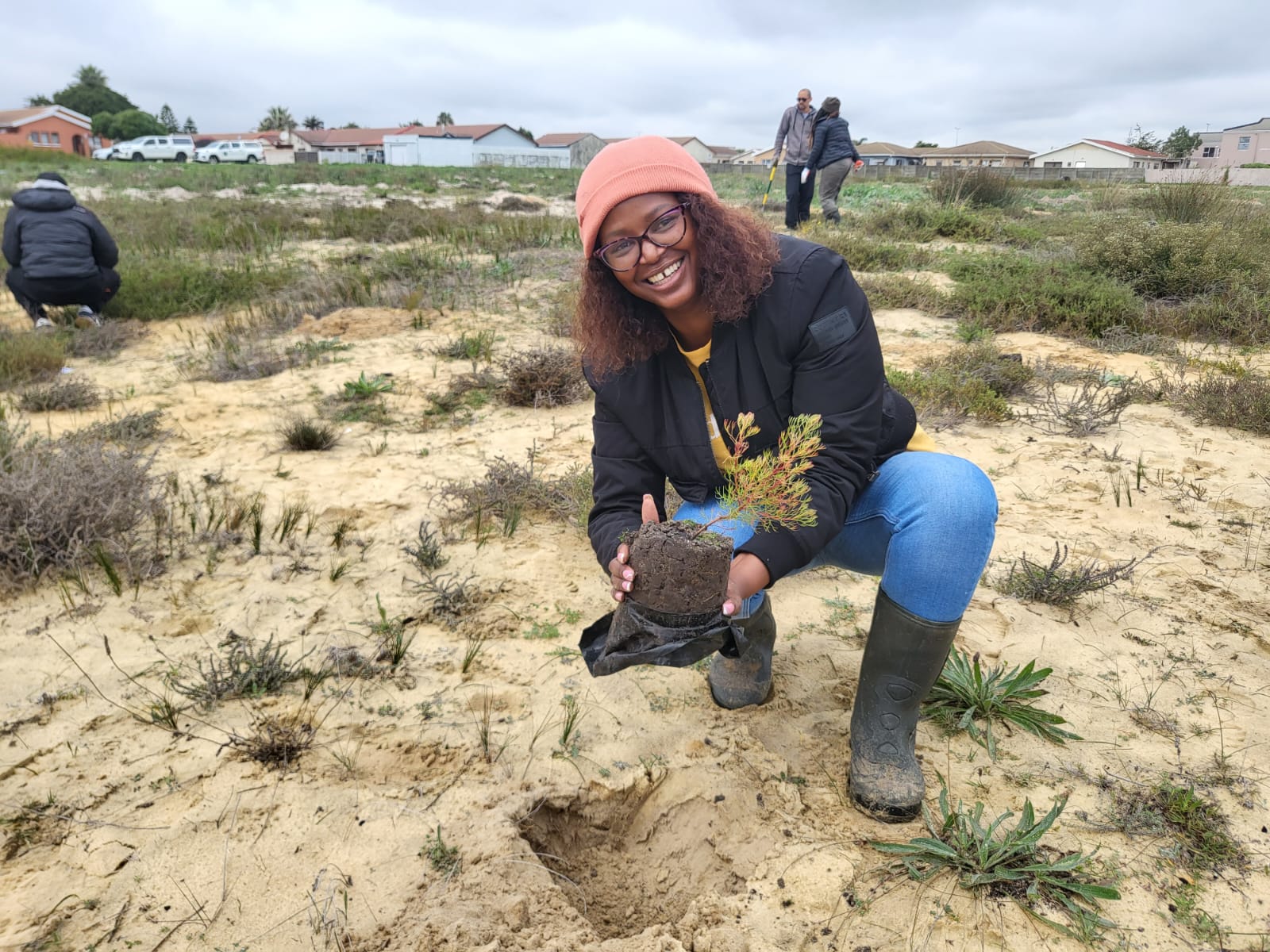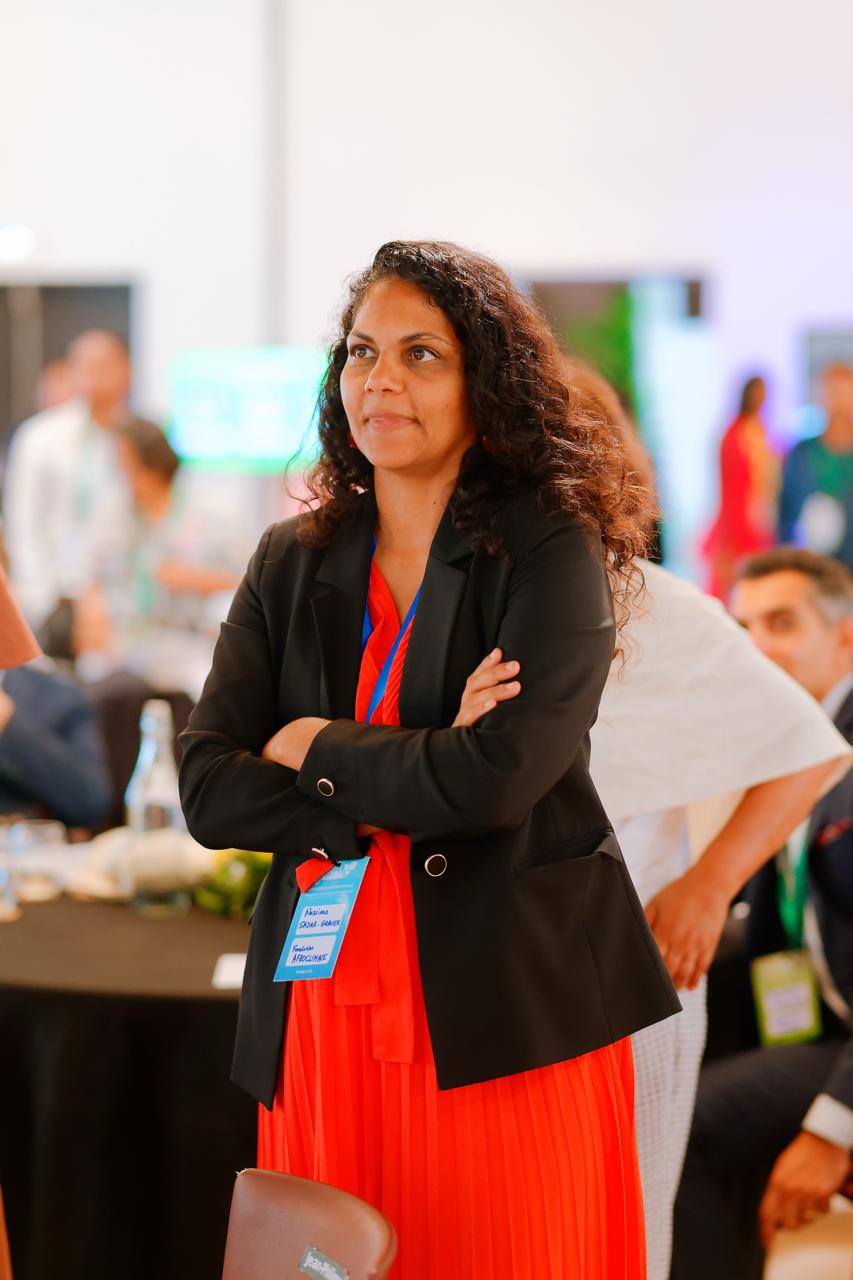I firmly believe in the law, but it should be the last resort. Before we punish people for poaching pangolins, do they even know that the pangolin is an endangered species? And do they understand its value in preserving the ecosystem?
An unwavering commitment to preserving nature, a remarkable ability to connect with people and a deep appreciation of the law are qualities that give Takudzwa (Taku) Mutezo an expansive, more inclusive way of practising conservation.
As an environmental lawyer, she has co-authored a handbook on prosecuting wildlife crimes, provided legal advisory, and drafted and amended vital legislative documents on wildlife at the national, regional, and international levels.
The Mandela Washington Fellowship for Young African Leaders alumna and WE Africa 2022 Fellow also helps feed her nation, Zimbabwe, through her farming venture, Hambai Produce.
She shares insights from her journey with Damaris Agweyu.

Taku, what is your "why"?
My "why" stems from a deep calling to leave the earth a better place than I found it. I would hate to look back in 50 years and see no pangolin left. When it comes to nature, we are borrowing what we currently enjoy from future generations. One way to contribute is by preserving what we have. I am a tiny drop in the ocean but if not me, then who?
Did you choose the world of conservation, or did the world of conservation choose you?
Looking back now, I would say it chose me. My intention was to pursue International and European law. I wanted to be a voice for the voiceless, to contribute towards people affected by wars and whose political rights were being suppressed. But my journey turned out differently than I'd expected.
While studying in the Netherlands, I got an opportunity to do an internship with the Wildlife Justice Commission. There, I started to learn about the poaching crisis.
As a child, I spent many of my school holidays in Hwange National Park, where my father worked. I grew up enjoying and appreciating our wildlife. And now, years later, I was learning that we were losing this wildlife. It was a frightening revelation, but it all came full circle. Because with this revelation came the questioning. Why had I not heard about wildlife crime before? Was anyone doing anything to stop it? Were our laws and policies doing enough to contribute toward environmental protection? Those are some of the questions that led me to specialise in environmental law.
At 29 years of age, you are the youngest and only female board member of Nyanga Rhodes Estate. Has your age or gender hindered your work in any way?
Fortunately, most board members have been highly receptive to hearing young voices. My voice has never been shut down because I'm young or a woman. My energy and tenacity as a young person have worked in my favour.
Initially, in my career, I found it challenging to get support from many older conservationists. But I worked hard to gain the trust of a few influential individuals who helped me gain the majority's confidence. And so when I entered these spaces, I had an easier time.
That is not to say my path has been simple. Many doors have been shut on me. I have heard a lot of noes. I've been told that it's impossible to change things.
How have you navigated the resistance?
It comes down to being strong-willed and not taking no for an answer. Some call it passion. I call it hunger. The hunger to see the change we want.
A law background has helped because I tend to confront issues from a legal perspective. I believe in having an approach that isn't based on dreams but on quantifiable data. I do my research and have my facts before stepping into the arena of people with opposing views and backgrounds. This way of doing things has helped me get people to rally behind me. But even if they don't, I remain determined and focused.
I often find myself in rooms where I am the only person under the age of 40 or the only woman or the only black person; sometimes, it's all of the above. Still, I go for it. I am not afraid of being the only one of my kind in the room.
What role do you see yourself playing in the spaces you occupy?
As a young African woman in conservation, I challenge the norms by modelling what inclusion can potentially result in. Because when we include more people that are different, we get more innovative ideas.
We have a long way to go, but the work has started.
A famous quote is attributed to Isaac Newton: "If I have seen further, it is by standing on the shoulders of Giants"... On whose shoulders do you draw your strength?
That is one of my favourite statements because I am acutely aware that I am standing on the shoulders of those who came before me. For me, it's about knowing my ancestral history, where I come from a generation of warriors—people who fought for equality and for our indigenous communities to have rights.
Women like my grandmother were the first of their generation to learn how to read and work white-collar jobs—despite living in a patriarchal society with a lot of racial injustice and segregation. That gives me the strength and courage to face whatever adversity may come as I stand up for the environment.
I've also been privileged in that in my first few jobs in the environmental space, I worked under strong, determined women who modelled the courage I needed to see as a young black woman.
What predominantly harmful narrative would you want to change in the environmental space?
Enjoying nature has been seen as the preserve of the wealthy, primarily white people. We should know that nature is for everyone to enjoy, appreciate, and safeguard for future generations.
One of the earliest known traditions in Zimbabwe is the use of totems. They identify different clans. Interestingly, most people's totems are symbolised by wild animals. You're not meant to harm or kill your totem. Today, we have become more modernised and less connected to our roots but we can learn a lot about preserving nature from our indigenous knowledge systems.
So the question remains, who gets to enjoy our wildlife? In Zimbabwe, we have incredible national parks. But not everyone has a car, the ability or the resources to access and enjoy these parks. There is a sense of privilege that comes into play.
I've been thinking about how we can open up and make things more accessible. If more people understood why our animals are important, we would have less poaching. This is an ironic viewpoint because, as a lawyer, it should be more about making the law effective and punishing the lawbreakers. I firmly believe in the law, but it should be the last resort. Before we punish people for poaching pangolins, do they even know that the pangolin is an endangered species? And do they understand its value in preserving the ecosystem we all rely upon for survival? It's pretty simple to create and enforce laws, but we also need to pay attention to why people are committing the crimes.
I am frequently asked why wildlife conservation is a priority when we have more significant human challenges like wars, poverty and disease. A lot of the time, people think nature can wait. We still have elephants. We have time. But we don't.
And then some say that conservationists care more about animals than people. This is a very harmful way of looking at things because it then becomes a story of us versus them. It disconnects us from one another and from nature. So the big challenge for us in this field is to be more inclusive regarding how we do conservation.
Are you a pragmatist or an optimist?
Both. As a conservationist, I am an optimist. I need to have that hope that things will get better. At the same time—and this is primarily due to my law background—I am also very pragmatic. I have had to work with people I ordinarily may not be inclined to work with. In this case, I rely on pragmatism to unite us all for a common purpose. I'd say my pragmatism is fuelled by optimism.
How has the WE Africa journey reshaped your thinking as a leader?
This journey has boosted my confidence as a young female leader in the conservation space. The challenges I was facing in terms of my strength, character and authenticity stemmed from imposter syndrome. Sometimes we are thrust into leadership positions—yes, we earn them—but sometimes, we don't even identify as leaders. So I have often wondered if I had enough experience to bring to the table. But the fact that I find myself in spaces where I might be the only young female of African descent is not a weakness; it is a strength. WE Africa has reinforced that belief for me. It has helped me find my space, own it and become a more authentic leader.
You're also a farmer?
Yes. I own an agribusiness that leverages technology to provide healthy and delicious food at affordable prices. Our goal is to encourage healthy eating and empower current and future generations to live, eat and grow sustainably. I believe I am doing everything that I was called to do. There are no what-ifs in my life at this point.
***
This interview is part of a series profiling the stories of the 2022 WE Africa leadership programme fellows, African women in the environmental conservation sector who are showing up with a strong back, soft front, and wild heart.




